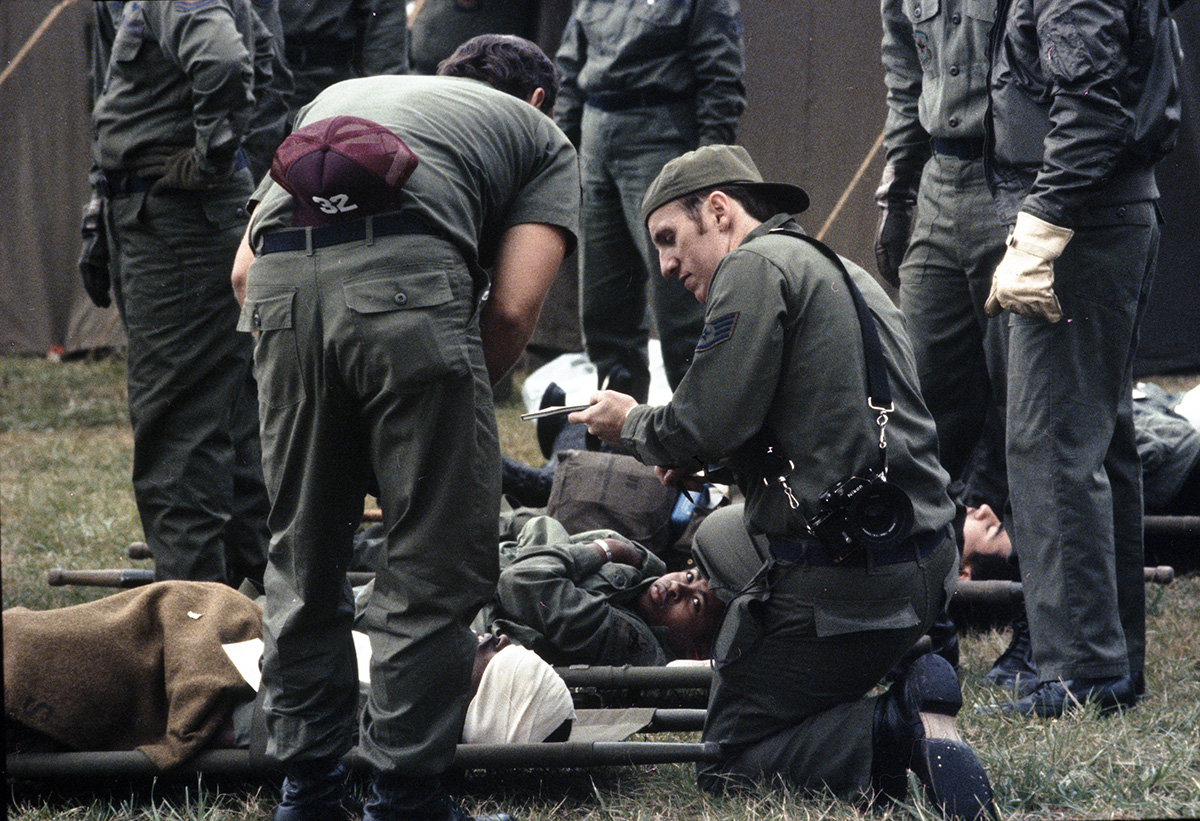Blast From The Past – Fall, 1980 – Here we find my on assignment taking information in the field for a caption during a military exercise in Germany called Reforger. Over the years I was part of the Combat Camera team that covered this annual exercise. The acronym stands for Return of Forces to Europe and involved the joint participation by many countries.
According to Wikipedia: Exercise Campaign Reforger (from return of forces to Germany) was an annual exercise and campaign conducted, during the Cold War, by NATO. The exercise was intended to ensure that NATO had the ability to quickly deploy forces to West Germany in the event of a conflict with the Warsaw Pact. Although most troops deployed were from the United States, the operation also involved a substantial number of troops from other NATO countries including Canada and the United Kingdom.
The Reforger exercise itself was first conceived in 1967. During the ongoing Vietnam War, the President Lyndon Johnson administration announced plans to withdraw approximately two divisions from Europe in 1968. As a demonstration of its continuing commitment to the defense of NATO and to illustrate its capability of rapid reinforcement, a large scale force deployment was planned that would deploy a division or more to West Germany in a regular annual exercise.
The first such exercise was conducted beginning on 6 January 1969. These exercises continued annually past the end of the Cold War, except for the year 1989, until 1993. Reforger 1975 marked the operational presence of the United States Marine Corps in Europe for the first time since World War I when the 2nd Marine Division’s 32nd Marine Amphibious Unit (32nd MAU) was deployed from Camp Lejeune, North Carolina, as part of that exercise. Reforger 1988 was billed as the largest European ground maneuver since the end of World War II as 125,000 troops were deployed.
Reforger was not merely a show of force—in the event of a conflict, it would be the actual plan to strengthen the NATO presence in Europe. In that instance, it would have been referred to as Operation Reforger. Important components in Reforger included the Military Airlift Command, the Military Sealift Command, and the Civil Reserve Air Fleet.
The U.S. Army also increased its rapid-reinforcement capability by prepositioning huge stocks of equipment and supplies in Europe at POMCUS sites. The maintenance of this equipment has provided extensive on-the-job training to reserve-component support units.

